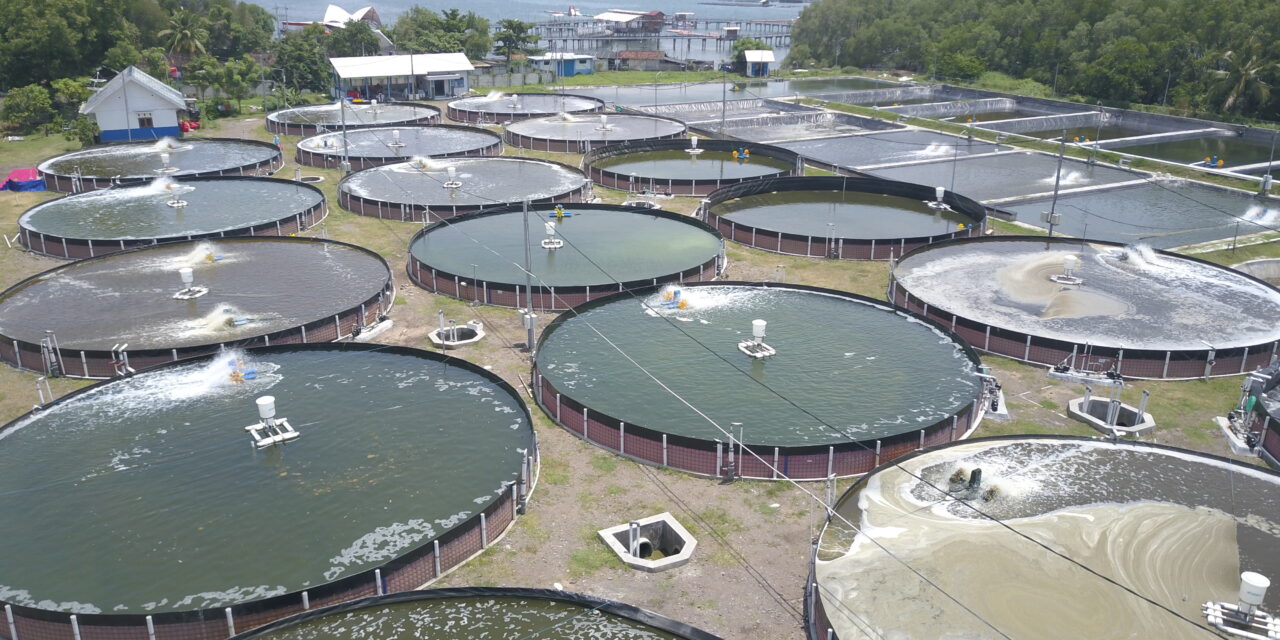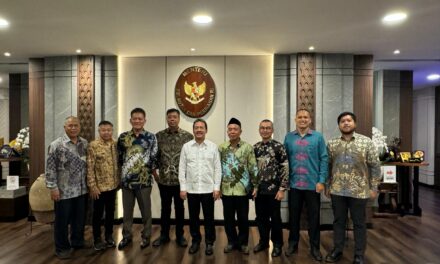Sustainable aquaculture has become a critical focus in meeting the growing global demand for seafood while ensuring environmental preservation and food safety. This approach emphasizes balancing economic sustainability with ecological health, targeting key areas such as reducing organic waste, conserving water, and preventing the spread of diseases in farmed species.
Among the innovative strategies supporting sustainable aquaculture, probiotics play a pivotal role. According to Gian Muus, Sales Director at Tiptopp Aquaculture BV, probiotics, particularly those from the Bacillus group, have proven effective in improving water quality and reducing reliance on chemicals.
The global trend toward using probiotics to promote sustainable aquaculture practices has gained momentum. As the aquaculture industry shifts away from antibiotics, the adoption of probiotics has accelerated. Gian notes that in Southeast Asia—an area with significant shrimp farming activity—the use of probiotics is growing rapidly. This increase is driven in part by export markets demanding sustainable and environmentally produced shrimp.
While the use of probiotics can lead to higher production costs, Gian estimates that probiotics typically account for 5–10% of production expenses. However, the benefits often outweigh these costs, delivering significant returns through improved production outcomes.
“Our farmers that use Bacillus probiotics frequently report survival rate increases of 20–30%, better feed conversion ratios (FCR), and reduced mortality rates,” Gian explains.
Farmers’ awareness and government support
In Indonesia, Gian emphasizes that the adoption of probiotics is driven not only by a growing awareness of sustainable aquaculture practices but also by government regulations banning antibiotics, making probiotics a practical alternative. He has seized this opportunity by introducing probiotics to Indonesian farmers through seminars and offering affordable probiotic products. Gian believes these efforts can empower small-scale farmers to achieve sustainable harvests while contributing to the overall growth of the aquaculture industry.
Read more: GSF 2024 series: Greenhouse farming booms in China
“Bacillus probiotics play a vital role in reducing antibiotic use by promoting beneficial microbial populations and suppressing harmful bacteria. This approach aligns with global regulatory efforts to eliminate antibiotics in aquaculture, ensuring compliance with export standards and improving operational sustainability,” he explains.

Gian Muus (second from the right) with his farmer partners in Indonesia. ©TipTopp
A versatile Bacillus
Various bacterial strains are used as probiotics in aquaculture, but Tiptopp predominantly focuses on Bacillus strains such as Bacillus subtilis, Bacillus licheniformis, and Bacillus amyloliquefaciens. According to the Gian, Bacillus works by breaking down organic waste, reducing toxic ammonia and nitrite levels, and enhancing the immune systems of farmed species.
In addition, these strains are renowned for their ability to produce extracellular enzymes and antimicrobial compounds. These enzymes assist in decomposing organic matter in ponds, preventing water quality deterioration, while their antimicrobial properties effectively combat harmful pathogens such as Vibrio spp. Bacillus also promotes gut health in farmed species like shrimp and fish.
Read more: How to save electricity in intensive shrimp famrs
“For instance, the Bacillus products we offer have been proven to reduce disease outbreaks and improve shrimp survival rates in ecologically sensitive systems, aligning with the goals of sustainable aquaculture,” Gian explains to All Fish News
Well-suited for high-value species
According to Gian, Bacillus strains are ideal for aquaculture commodities such as whiteleg shrimp (Litopenaeus vannamei), tilapia, and pangasius. These intensively farmed species are highly susceptible to water quality issues and diseases. For instance, in intensive whiteleg shrimp farming, Bacillus can reduce Vibrio domination effectively. Meanwhile, in tilapia farming, probiotics can enhance digestion and stress tolerance, improving resilience during environmental fluctuations, making these species ideal candidates for probiotic applications.
Gian also emphasizes that the farming system of each species plays a crucial role in determining the appropriate type of probiotics. Selecting the right probiotics requires consideration of specific farming system conditions, such as stocking density, environmental factors, and the species being cultivated.
For example, in high-density intensive shrimp farming systems, significant organic waste accumulation is common. Gian recommends using Bacillus subtilis for its effectiveness in managing ammonia levels and reducing shrimp stress. “Carefully selecting strains based on environmental factors and disease risks ensures farmers achieve optimal results,” Gian explains.
As for farming systems, he states that Bacillus products can be used across a variety of aquaculture setups, including traditional systems, biofloc systems, and recirculating aquaculture systems (RAS). In biofloc systems, Bacillus supports microbial floc formation, aids in nutrient recycling, and improves water clarity. In traditional ponds, probiotics suppress pathogens and stimulate the natural defenses of farmed species. Meanwhile, in RAS, Bacillus prevents organic buildup and maintains water clarity.
Encapsulation enhances effectiveness
To improve the effectiveness of its probiotics, Tiptopp has developed encapsulation technology that allows bacteria to remain active even in challenging environments. Gian explains that the company is also investing in genomic research to identify strains with enhanced nitrogen-reducing capabilities, specifically tailored for shrimp and tilapia farming systems.
He further emphasizes that while probiotics offer numerous advantages, they are not the sole determinant of successful aquaculture. Good farming management practices remain essential. He recommends regular water quality monitoring and consistent probiotic application to ensure optimal effectiveness.
***







